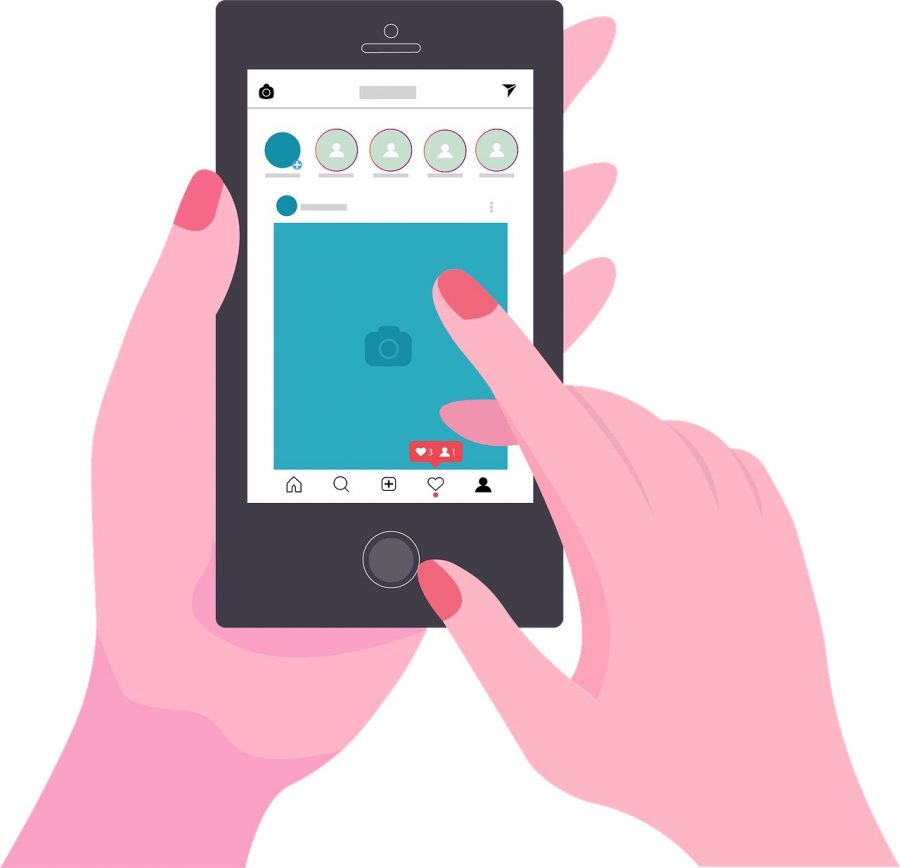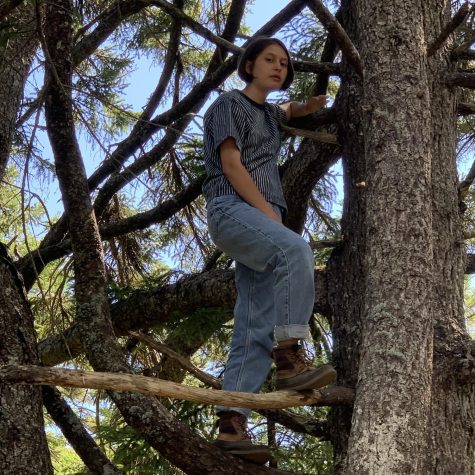The Parasocial Problem
June 12, 2021
Parasocial relationships, where a person forms one-sided mental and emotional bonds with someone who doesn’t know they exist, have been around for as long as there were celebrities to base them off of. The man who attempted to assassinate Ronald Reagan, for example, did so to impress Jodie Foster, whom he had been obsessively stalking for years. But while these relationships may not be new, the nature of the internet breaks down boundaries between fan and public figure, exacerbating this phenomenon. Forty years ago, it was hard to keep up with every facet of a celebrity’s life down to the food they ate for breakfast. In the age of the internet, it’s encouraged.
Social media functions, almost by nature, to aid in the formation of parasocial relationships. From the posting of everyday, casual updates to the ever inconspicuous “I love you,” a certain faux-closeness is developed between fans and their idols, from celebrity to influencer and even to lesser known internet funnymen and content creators. Creators seemingly invite their followers into their personal lives by posting what is usually only shared with friends. It’s not important that you’ve never spoken to each other, all that matters is the construction of this relationship, the talking to fans, and the cultivation of adoration. It is easy to be swept up in the wave of this manufactured intimacy. Even if you don’t keep up with every video or post yourself, humans are by nature social creatures; we want to form bonds. It is only natural that we would create them even with one-dimensional public figures. And while parasocial relationships do have some benefits, there are problems inherent to these one-sided relationships that can manifest themselves in dangerous ways.
Parasocial relationships, like all relationships, provide the people forming them with a feeling of genuine affection and care, which can help people who struggle forming traditional friendships. And while this experience does provide comfort in the fact that there are no negative consequences, there comes a point where the balance between it and genuine friendship becomes unstable. Oftentimes, real relationships take the backseat to less tumultuous parasocial ones. And although this lack of consequences can be comforting to some, it is ultimately unrealistic. Parasocial relationships only create further harm when perfect ideas of interpersonal relationships gets carried into inherently messy ones between real people. In the midst of a very real and ongoing pandemic, the effects of parasocial relationships are only compounding; removed from almost all chances at face-to-face interaction, people, and teenagers especially, become more and more attached to the creators they follow, and more and more removed from the ability to carry genuine interpersonal relationships. It may seem like simple fan behavior, but these relationships become dangerous in their ability to isolate and create echo chambers.
Online communities formed around a shared love of certain people often dedicate themselves entirely around the veneration of their favorite internet man. As this devotion develops, so does the creation of more intensely secluded social circles where logic becomes more circular. When you dedicate a significant amount of time to the life and work of an idol, they stop becoming a person, fallible and impure, and form a figurehead polished of all imperfections. Any criticism of the object of desire gets read as an attack and becomes criticism of the self, so interlinked the two have become. When this criticism inevitably does come, it is followed by thousands decrying cancel culture like one cries wolf, proverbially fighting to the death in defense of someone who fundamentally cannot know them. These cults of personality formed by parasocial relationships make fans believe that they are defending their idol the way one defends a friend, assuming them innocent of all wrongdoing without questioning it at all. The inability, or unwillingness, to disentangle with the idol is the ultimate culmination of the parasocial relationship.
Although fans and creators don’t play equal roles in the creation of parasocial relationships, the negative effects of one extends to both parties. The infamous “Larries,” people who “shipped” Harry Styles and his bandmate, Louis Tomlinson, felt entitled to do so because the band seemingly let them into their lives, unknowingly or not creating parasocial relationships. This behavior, however, led to the dissolution of the singers’ friendship, as any act of intimacy was grossly speculated about. And this instance wasn’t an isolated event. Tales of “real person shipping,” in which someone creates fanwork supporting a proposed relationship between two real people, have popped up, and continue popping up, for almost any two men with a following. They are usually resulting directly from parasocial relationships, and just as often ruin real relationships and even go so far as to out people. Every iteration of the parasocial relationship can never be wholly good, regardless of how much comfort is derived from it. More often than not, they harm every party involved.
What started as simple interest evolves into an unceasing involvement that will only crash and burn as time goes on. Cancel culture, K-pop stan culture, even real person fanfiction, and all other sorts of internet phenomena of various moral standing can trace their roots to the ever ubiquitous parasocial relationship. When consuming media of any kind, it is important to take a step back and remember that your favorite guy, be they steamer or celebrity or TikToker, cannot and does not know you or any one of their followers, however hard that may be to hear at first.








